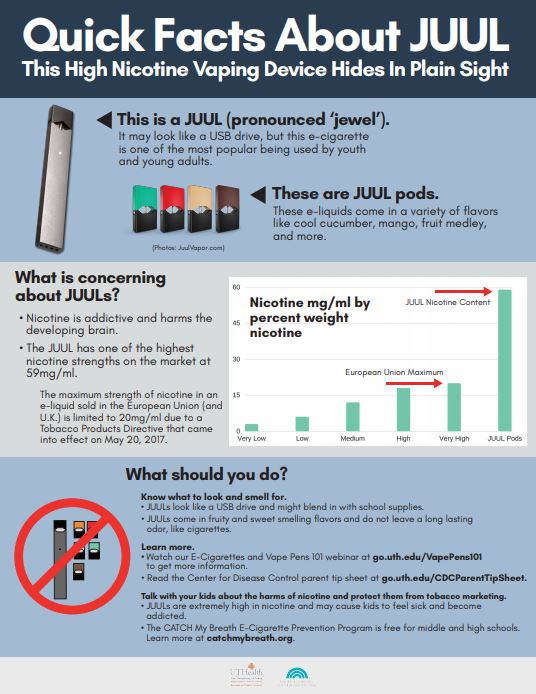
Share On Social!
Rules on the age for smoking cigarettes are tightening up across the nation.
Texas (19.6% Latino) legislators have taken a significant step in this issue — passing legislation that will raise the legal minimum age to purchase cigarettes, e-cigarettes, and other goods to 21.
Gov. Greg Abbott signed Senate Bill 21 into law earlier this month and will go into effect on September 1.
Government officials and medical professionals hope passing tobacco 21 bills across the country—and other e-cig bans—will make significant shifts in addiction rates.
“Any teen using any type of tobacco product or e-cigarette raises their harm from zero to a level that is unacceptable,” Jeffrey Hardesty, research program manager at Johns Hopkins University’s Institute for Global Tobacco Control, told TIME. “Any law that can help get these products out of the hands of young adults and minors is necessary.”
Tobacco 21 Laws in the U.S.
Texas’ legislation follows the lead of San Antonio (64%), which approved a city-wide tobacco 21 ordinance in January.
Experts say the main idea behind these laws is that raising the age will reduce the number of people who begin smoking, according to CNN. That idea has a good foundation. Nearly 9 out of 10 smokers started smoking by age 18, according to the Office of the Surgeon General.
“Delaying the age when young people first begin to use tobacco—the leading cause of preventable death—will reduce the risk they will develop a deadly addiction,” Shelby Massey, Shelby Massey, Texas Government Relations Director of the American Heart Association, told KXAN-TV.
Still, the bill received slight pushback from some Republican state legislators, according to Texas Tribune. State Rep. Matt Schaefer added an amendment that exempts all members of the military 18 years or older.
Other states have passed such legislation, including:
- Hawaii (10.7%)
- California (39.3%)
- New Jersey (20.6%)
- Oregon (13.3%)
- Maine (1.7%)
- Massachusetts (12.3%)
Federally, Senate Majority Leader Mitch McConnell announced his plan to introduce national tobacco 21 legislation on the earlier this year.
“We have an epidemic of nicotine consumption either through cigarettes or through vaping in high schools and even middle schools, not only in our state but around the … country,” McConnel said.
San Francisco Becomes 1st City to Ban E-cigs
San Francisco’s Board of Supervisors voted to ban e-cigarettes on June 25, 2019.
The ordinance prohibits selling nicotine pods or devices that haven’t been approved by FDA. It will take effect 30 days after its signed. Full implementation is set six months after.
The ban is bold, because San Francisco is home to JUUL Labs, the most popular e-cig producer.
“There is so much we don’t know about the health impacts of these products, but we do know that e-cigarette companies are targeting our kids in their advertising and getting them hooked on addictive nicotine products,” San Francisco mayor London Breed said in a statement.
The use of e-cigarettes is unsafe for kids, teens, and young adults, according to the CDC report. The number of U.S. teens who admitted using nicotine products rose about 36% last year.
The FDA is making a series of new enforcement steps to crack down on JUUL e-cigarettes. This is significant for Latinos.
Smoking and E-Cig Risks and Latinos
The development of e-cigarette and vaping products has also increased from youth smokers.
Youth between ages 18 to 21 are most at risk to become habitual smokers.
Longer duration of smoking is associated with increased risk for lung cancer, lung cancer death, and coronary heart disease.
“Tobacco companies target kids and young adults because they know that is when most users first try and become addicted to tobacco,” writes Campaign for Tobacco-Free Kids. “About 95% of adult smokers begin smoking before they turn 21, and about 80% start before age 18. Four out of five become regular, daily smokers before they turn 21.”
Specifically, Latino children are more likely to develop a daily smoking habit than their racial peers, according to a 2016 report.
This law will also change the way tobacco companies market their products. For years this industry used youth-targeted advertising to sell their products. Further, the more young people are exposed to cigarette advertising and promotional activities, the more likely they are to smoke.
Despite the significant backlash over this kind of past advertising, vape companies, such as JUUL, have started similar marketing campaigns again. The U.S. surgeon general says teen vaping is a national epidemic.
What’s dangerous is that young Latinos are increasingly using e-cigarettes, too, according to American Heart Association News. The U.S. surgeon general also says teen vaping is a national epidemic.
How You Can Get Involved
A unique program provided by Dr. Ramirez’s Institute for Health Promotion Research at UT Health San Antonio is the Quitxt program, a bilingual service that sends texts with culturally and regionally tailored support to help South Texas young adults quit smoking.
“We are deeply honored to be able to expand and extend our Quitxt texting program to help young adults quit smoking across Texas,” Dr. Ramirez said.
Learn more about Quitxt text-message program in English or Spanish to help you quit smoking today!
Explore More:
Healthcare AccessBy The Numbers
142
Percent
Expected rise in Latino cancer cases in coming years



